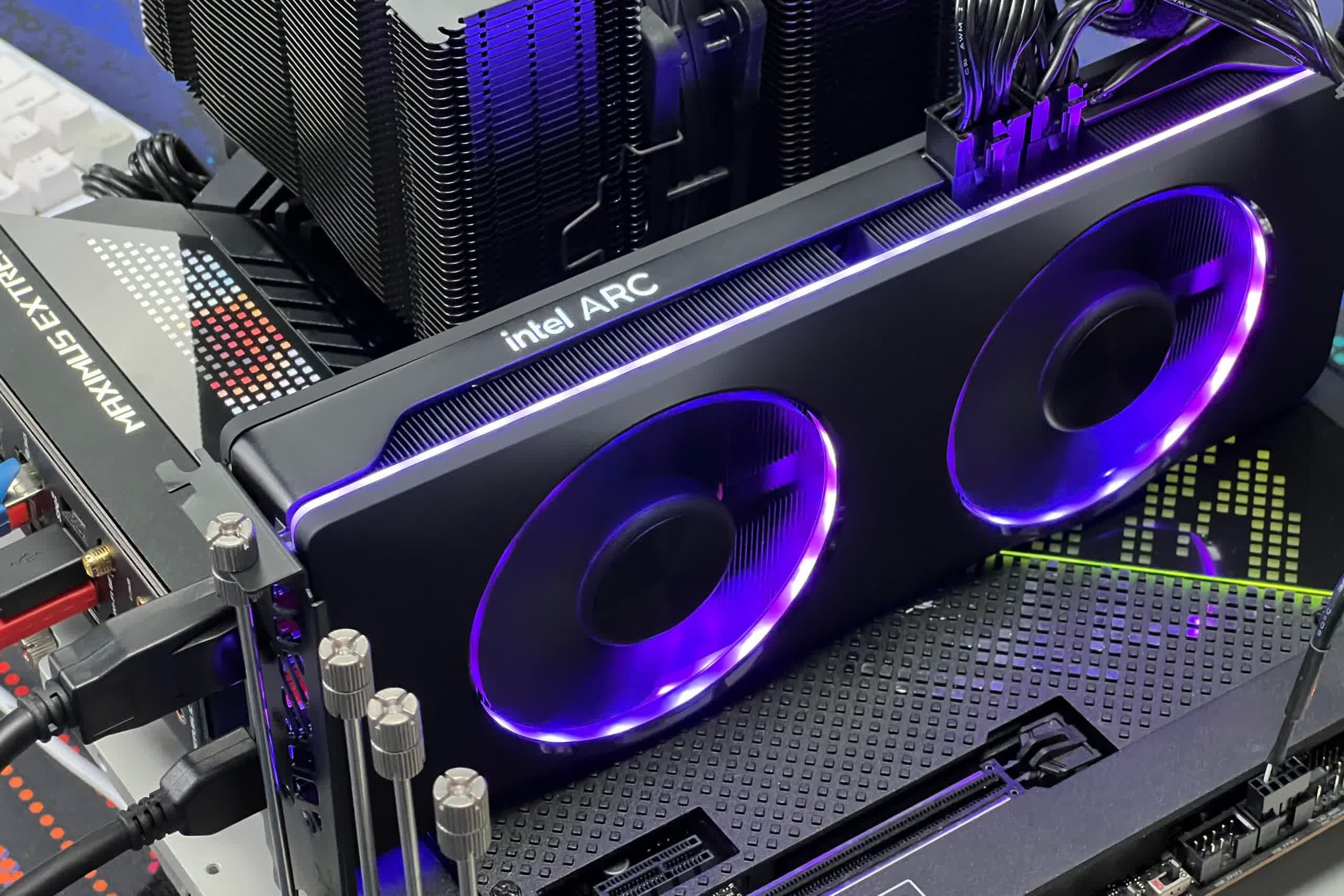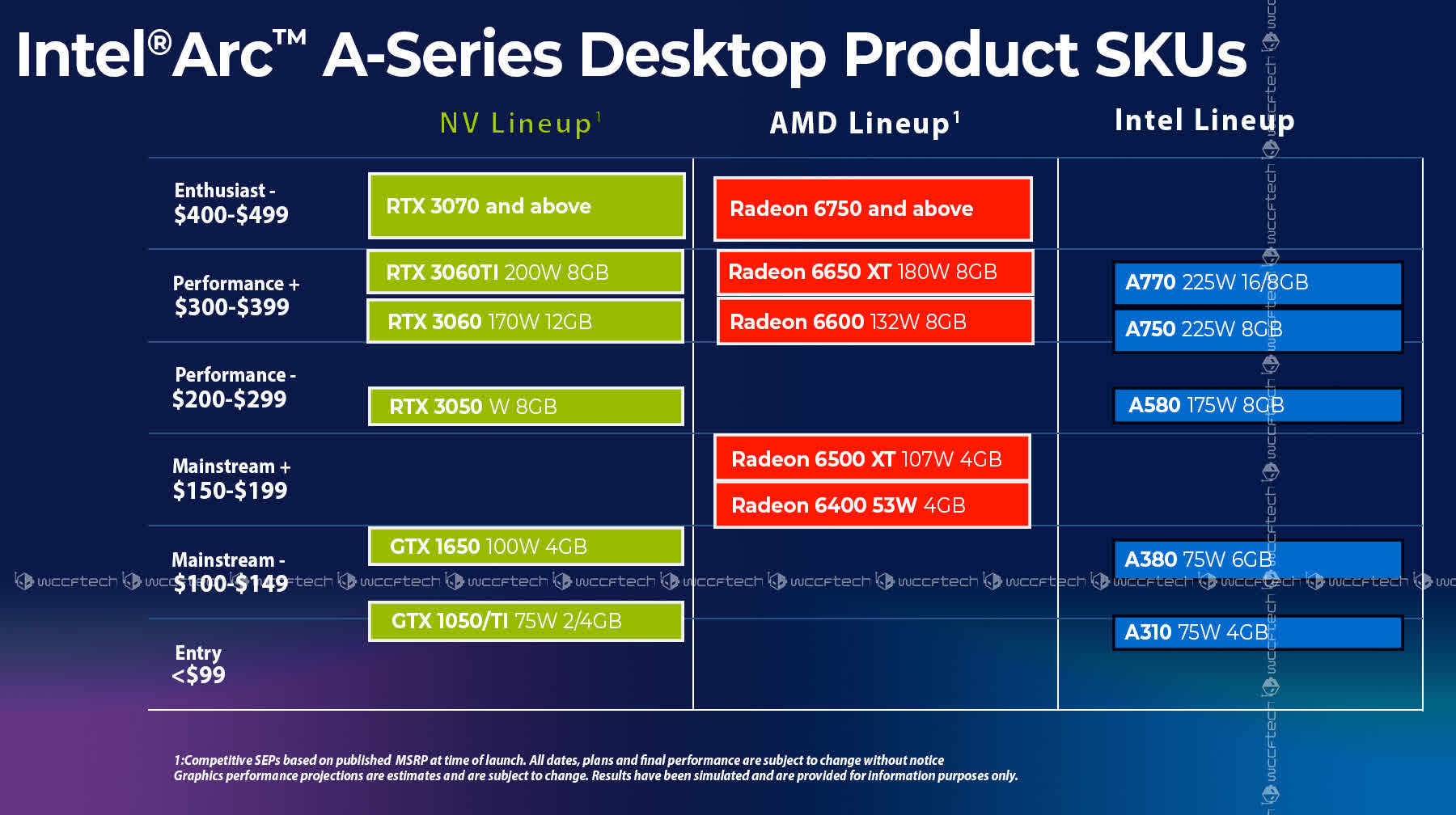Recap: Intel is finally teasing its long-awaited Arc Alchemist GPUs and seems to be on the verge of releasing them. Most of their specifications were leaked months if not years ago, leaving pricing as the biggest mystery.
Wccftech has sourced a slide (below) that paints a rough picture of Alchemist's pricing, power consumption, and memory capacity. It was allegedly part of a presentation created by Intel for its partners in Taiwan. It's fairly official-looking and also contains reasonable information, but it doesn't come from a reliable source, so treat it with the appropriate skepticism.
Intel's team joined Linus Tech Tips on stream last week to announce the third member of the Alchemist series, the A770 flagship. They were tight-lipped but promised to divulge more details including the price in an upcoming video. According to the slide, they'll say that it costs somewhere between $350 and $390; slightly less than the $399 MSRP of both the GeForce RTX 3060 Ti and Radeon RX 6600 XT.
In its own YouTube videos, Intel has been talking up the penultimate flagship, the A750. It's level with the $330 RTX 3060 and RX 6600 (non-XT) on the slide's graph and apparently outperforms them, which is a good thing. A hundred dollars or so lower sits the A580, seemingly positioned to compete with the RTX 3050 on the border between the entry-level and midrange market segments.
Via Wccftech
Intel has also been subtly teasing the performance of the A380 for a few weeks, which is a little strange given that it's already been released in China and reviewed. According to those foreign reviews, it's slightly faster than the (horrendously overpriced) $200 RX 6500 XT. In China, it sells for less than $150 and that's where it lands on the slide's graph as well.
At the base of the product stack, the A310 occupies the diminutive ~$100 price point. It doesn't make much sense as a product, given that it consumes a lot of power (relatively) and can't be much faster than integrated alternatives, but most of the small $100-and-lower market is OEMs anyway.
It's too soon to tell if Intel's pricing will be competitive, but it's at least targeting the right price points in what I'd describe as a realistic scenario. Arc Alchemist could compare favorably to the GPUs currently on the market, but note that they are a couple of years old already. AMD and Nvidia are both known to have new generations in the works that could give Alchemist a pretty hard time.
Masthead credit: Linus Tech Tips

